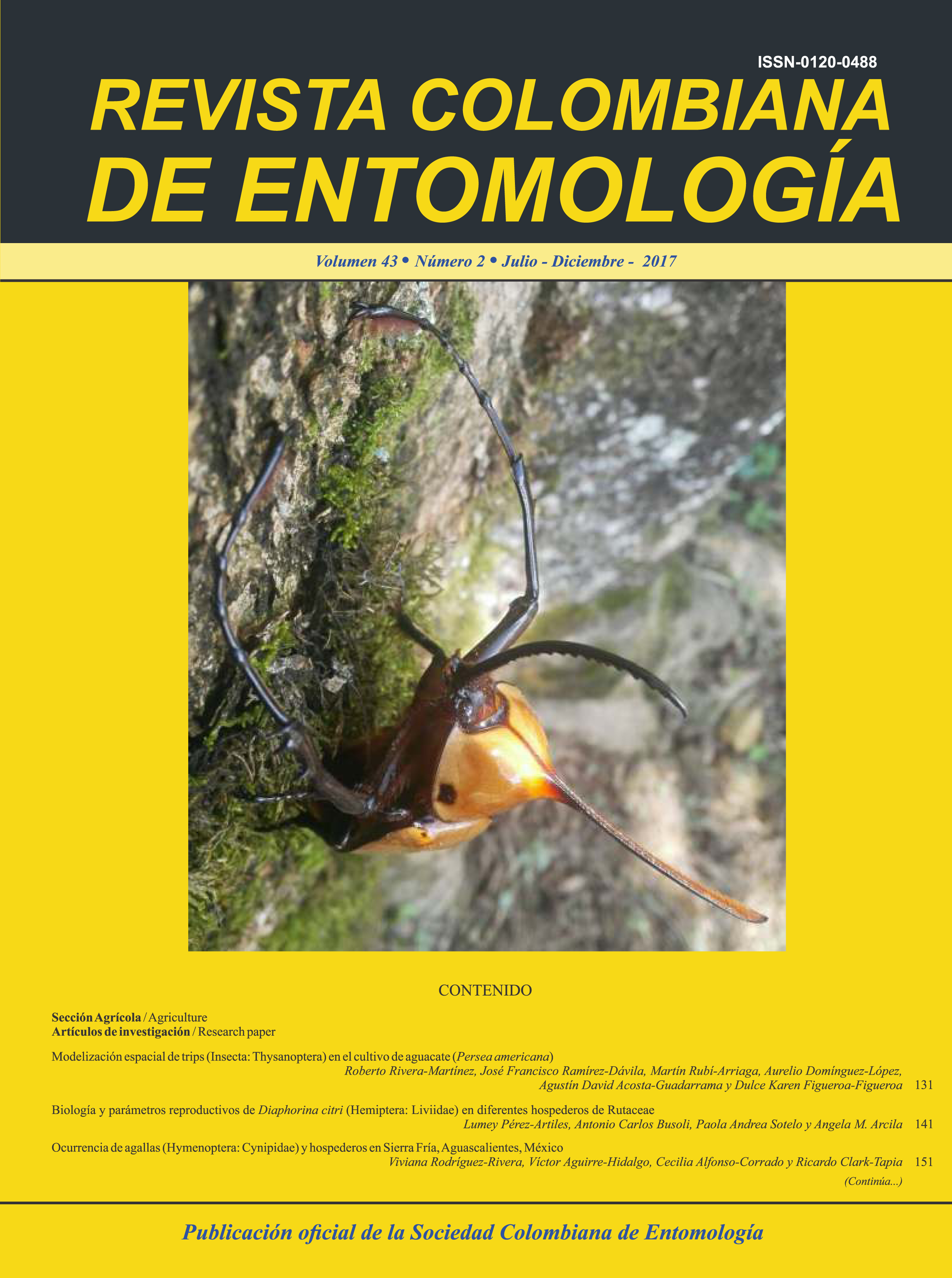Efectos letales y subletales luego de exposición a insecticidas convencionales y biorracionales sobre huevos de Chrysoperla externa (Neuroptera: Chrysopidae)
Keywords:
IPM, neuropterans, Neotropical region, pesticidesMain Article Content
The neuropteran Chrysoperla externa is a generalist predator of many important agricultural pests in the Neotropical region. It occurs on several agricultural crops, and therefore it can be affected by pesticides. Here, the lethal and sublethal effects of conventional and biorational insecticides were assessed against C. externa eggs. The exposure method consisted on immersion of eggs in solutions with the maximum field recommended concentration of 25 mg a.i./L cypermethrin, 200 mg a.i./L acetamiprid, 40 mg a.i./L azadirachtin and 75 mg a.i./L pyriproxyfen. The viability of the eggs was not affected, but 100 % of the neonates from eggs treated with cypermethrin died after 48 h. Larvae from eggs treated with acetamiprid, azadirachtin and pyriproxyfen survived to the adult stage, with survival rates of 75 %, 70.6 % and 84.6 %, respectively. Regarding the reproductive parameters, the preoviposition period was not affected but the fecundity and fertility were lower with acetamiprid and pyriproxyfen, showing the sublethal effects of the insecticides acting in the adult stage.
Downloads

This work is licensed under a Creative Commons Attribution-NonCommercial-ShareAlike 4.0 International License.
Authors retain the copyright on their work and are responsible for the ideas expressed in them. Once a manuscript is approved for publication, authors are asked for a publication license for the term of legal protection, for all territories that allows the use, dissemination and disclosure of the same.

